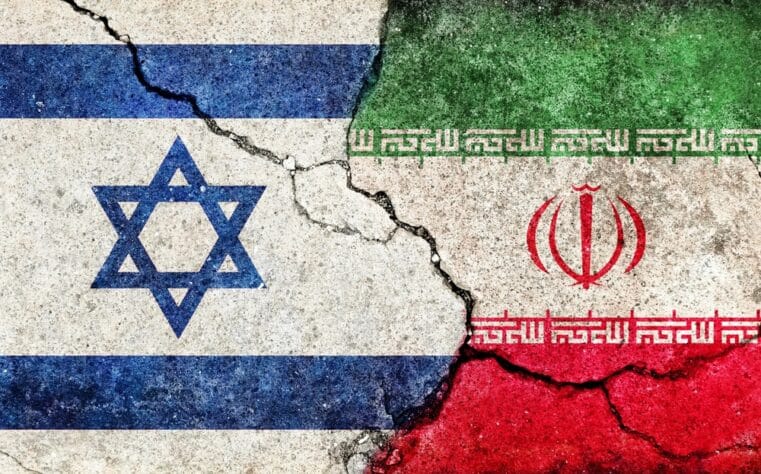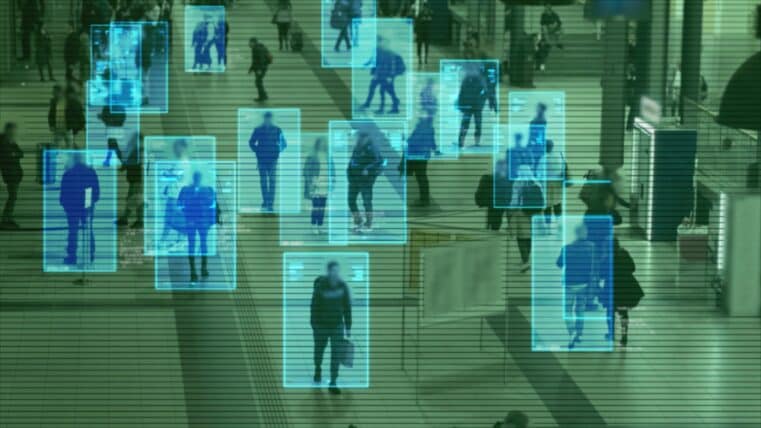
Now More Than Ever Is “A Time for Choosing” (What Reagan’s Speech Means Today)
The Perpetual Struggle for Freedom
As we approach 2018, we face challenges whose particularities may be unique to our times, but whose essence reflects the struggles and aspirations that have defined us as Americans since our Founding Fathers first declared independence: we fight for the values of individual freedom against the shadows of ideological and institutional tyranny.
From the yoke of British imperialism to fascism on the European continent (WWI and II) to the spread of Communism and now the threat of religious extremism, we’ve always held steadfast to our belief in life, liberty, and the pursuit of happiness, whether such beliefs led us toward the comforts of peace or the inhumanities of war.
1964: A Time for Choosing
In 1964, Ronald Reagan delivered a seminal speech--A Time for Choosing--that outlined his vision for a “possible” America; its basic message echoeing the foundational principles that gave birth to this nation almost two centuries prior.
Dubbed “The Speech,” Reagan’s words remained an enduring beacon for the basic values of American freedom and enterprise. Set against the contentious backdrop of partisan politics, against the debates on “big government,” and against the illusion of prosperity that many Americans may have fell victim to as captured by the phrase “we’ve never had it so good,” Reagan outlined a few key principles that smashed liberal/socialist notions seeking to threaten the sovereignty of “the individual,” the right to “free markets,” and the freedom for a “self-governing” nation.
For Reagan, A Time for Choosing, not only introduced his political views to mass audiences for the first time, it also transformed him from a Hollywood actor into a viable political figure, one who would go on to become one of the greatest and most revered presidents in US history.
2017: A Time for Choosing Once Again
In today’s Trump era, Reagan’s message would mean very little if couched within the stale debate of left vs right. After all, Reagan himself said that ”there is no such thing as left or right, there’s only an up or down.” But the relevance of his message would mean everything if viewed within the context of the individual’s struggle for freedom against the monopolization of power (from legislative coercion to outright tyranny).
So how might we read his speech today? Where do these “monopolies of power” exist within our own society; not only within our socio-political structures, but also within our own thoughts, tendencies, and habits? Are we enjoying the anti-productive “luxuries” of a divided nation (what Reagan calls a “family fight”), and is our division still about left vs. right, or is it about, as Reagan would have hoped, a greater struggle against tyranny on a higher level; one transcending partisan divisions?
Are there any mechanisms of legislative “coercion” within our own government and society; mechanisms that we have failed to recognize? And if so, does it mean that we have relinquished our individual freedoms by unknowingly cultivating the spirit of “anti-freedom” within ourselves?
Let’s revisit a few key messages in Reagan’s speech, re-interpreting them to fit our current circumstances.
ONE - A NATION DIVIDED IS A NATION EASILY CONQUERED
“I have been talking on this subject for ten years, obviously under the administration of both parties. I mention this only because it seems impossible to legitimately debate the issues of the day without being subjected to name-calling and the application of labels. Those who deplore use of the terms “pink” and “leftist” are themselves guilty of branding all who oppose their liberalism as right wing extremists. How long can we afford the luxury of this family fight when we are at war with the most dangerous enemy ever known to man?”
This is from the written version of his speech (Reagan revised the speech several times--each of them containing different nuances expressing his main points and principles).
A divided country is a weak country. When “divide and conquer” strategies can spread undetected across entire segments of society, it tells you something about the people in that society: first, they can easily be fooled; second, they are not fit for self-governing; third, they are incapable of seeing and critically evaluating what’s in front of their eyes.
On the political front, we see this division in our own country--something that would have appalled Reagan himself--not only spurred on by both parties in our political system, but, as we’ve seen, spurred on by outside forces such as the hostile nations (i.e. Russia) and rogue hackers in their employ whose divisive (“fake”) actions on social media were successful in sowing seeds of discontent across our nation during the last presidential election. How did we allow this to get past us?
TWO - THE DANGER OF LEADING (SELF-GOVERNANCE) OVER THE DISGRACE OF BEING LED
“Alexander Hamilton warned us that a nation which can prefer disgrace to danger is prepared for a master and deserves one.”
In his speech, Reagan wasn’t just talking about the socialist tendencies of big government, nor was he just referring to the then communist threat. In principle, he was talking about the monopolization of any power that could easily “convince” or “coerce” Americans to give up their freedoms.
The “master” comes in many forms, and Reagan was right in pointing out how such a master/slave relationship was embedded within the political and economic systems of our own society.
“I for one find it disturbing when a representative refers to the free men and women of this country as the masses, but beyond this the full power of centralized government was the very thing the Founding Fathers sought to minimize.”
“They knew you don’t control things; you can’t control the economy without controlling people.”
“So we have come to a time for choosing: either we accept the responsibility for our own destiny, or we abandon the American Revolution and confess that an intellectual belief in a far-distant capitol can plan our lives for us better than we can plan them ourselves.”
Think about it: Is government taxation a form of monopoly? Is the “war on cash” something that can only be mandated via monopolist authority? Is the central bank’s complete control over the issuance and regulation of money a form of monopoly? You bet!
With regard to the last point (central bank), bear in mind that no matter who occupied the White House, no party or leader--with the exception of Thomas Jefferson and James Madison--had ever seriously opposed or challenged the power of the Federal Reserve.
Back to Reagan’s statement, when we blame our economic woes on (or attribute our economic fortunes to) a single president or administration, we are not seeing the real enemy:
- First, is the enemy within us: our “messianistic” devotion to a “leader” distracting us from our own (now atrophied) capacity for self-governance.
- Second, the enemy among us: the corrosive power of any centralized institution (e.g. big government or the Fed) that allots to us mere bits of freedom but within the enforced confinements of their legislative authority.
How can we self-govern if we cannot even see or admit to our own tendencies toward weakness and submission?
Reagan believed in our nation’s capacity to take a more self-reliant stance and to brave self-governance. But to lead as a collective of “individuals,” we must first do away with the mass desire to be led.
THREE: FALLING FOR THE ILLUSION OF PROSPERITY
“The line has been used, "We've never had it so good." But I have an uncomfortable feeling that this prosperity isn't something on which we can base our hopes for the future. No nation in history has ever survived a tax burden that reached a third of its national income. Today, 37 cents out of every dollar earned in this country is the tax collector's share, and yet our government continues to spend 17 million dollars a day more than the government takes in…”
Reagan provides a blow-by-blow detail of the fragilities that beset the US economy in the mid-1960’s. Today, we see two extremes. Our national debt is much worse than ever before, while our stock market (much of which has been fueled by cheap money via QE, corporate stock buybacks, and the “irrational exuberance” of regular investors jumping into the markets...late in 2017) is roaring!
Our economic woes:
-
- Our national debt is up to $20.5 Trillion.
- Our US federal deficit is at $667 Billion.
- Our gross debt to GDP ratio is 106.06%
- Our revenue to GDP ratio is 33% but our spending to GDP ratio is 35.7%!
- US Federal tax revenue is $3.3 Trillion
Our illusion of prosperity:
Dow Jones Industrial Index
The US dollar, aside from its “nominal” strength, is beset by massive national debt. Several countries are trying to get out from under the dollar’s yoke--”de-dollarization.” Some countries, such as China and Russia, are positioning themselves to displace the dollar’s reserve status. Price of domestic goods have been steadily rising despite the Fed’s inflation measure which has stated for years that inflation was under control.
To echo Reagan with regard to the current state of the Fed, US dollar, economy, and raging stock market, “this prosperity isn’t something on which we can base our hopes for the future.”
If we cannot achieve real change in this illusive prosperity, we need to at least inoculate ourselves from its potentially disastrous effects. The first step is to become aware of how far we have strayed from the path of self-reliance and self-governance. But an even more important step is to realize that we are capable of becoming much more than we are now.
To quote Reagan in a speech that launched his 1980 presidential campaign:
“Let us pledge to each other with this great lady [Statue of Liberty] looking on, that we can, and so help us God, We Will, Make America Great Again.”
As we approach 2018, we should bear in mind that we’ve always had the power to “Make America Great Again.” Not by waiting passively for the “right” leader or administration, and certainly not by bashing everyone on the other side of the political spectrum--which is not a great way to “pledge to each other” in the face of “the great lady” liberty--but by taking the “liberty” to initiate small individual actions that produce “real” awareness and “real” change. Collectively. Not “left or right,” but (as Reagan says) “up” rather than “down.”
We encourage you to view Reagan’s televised speech in its entirety below.













